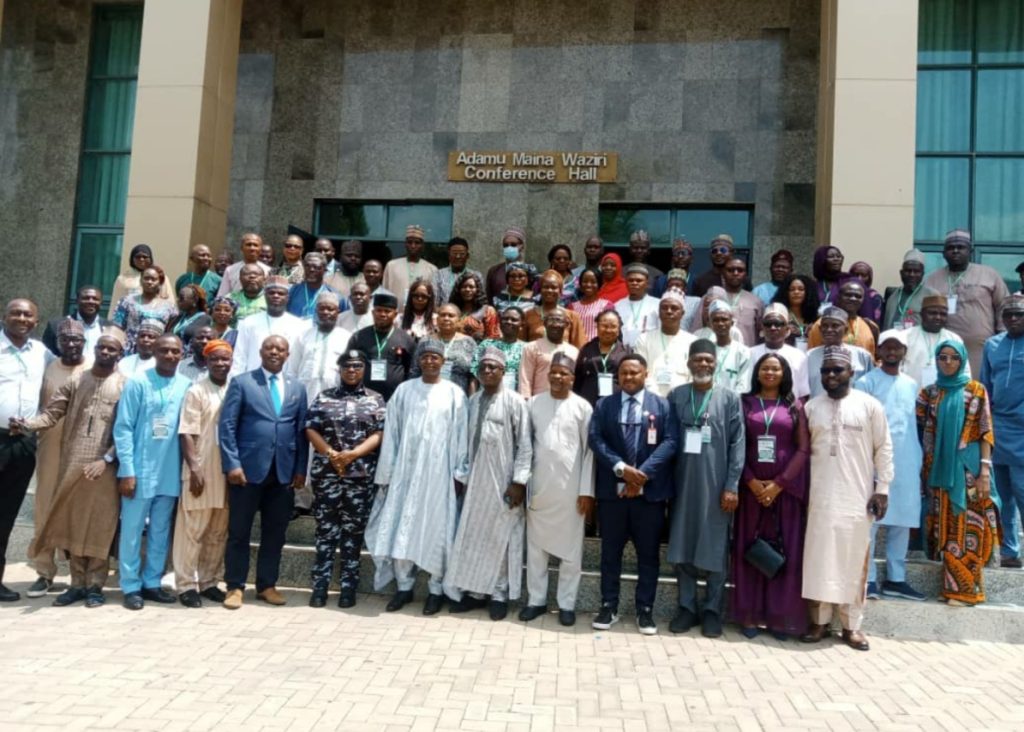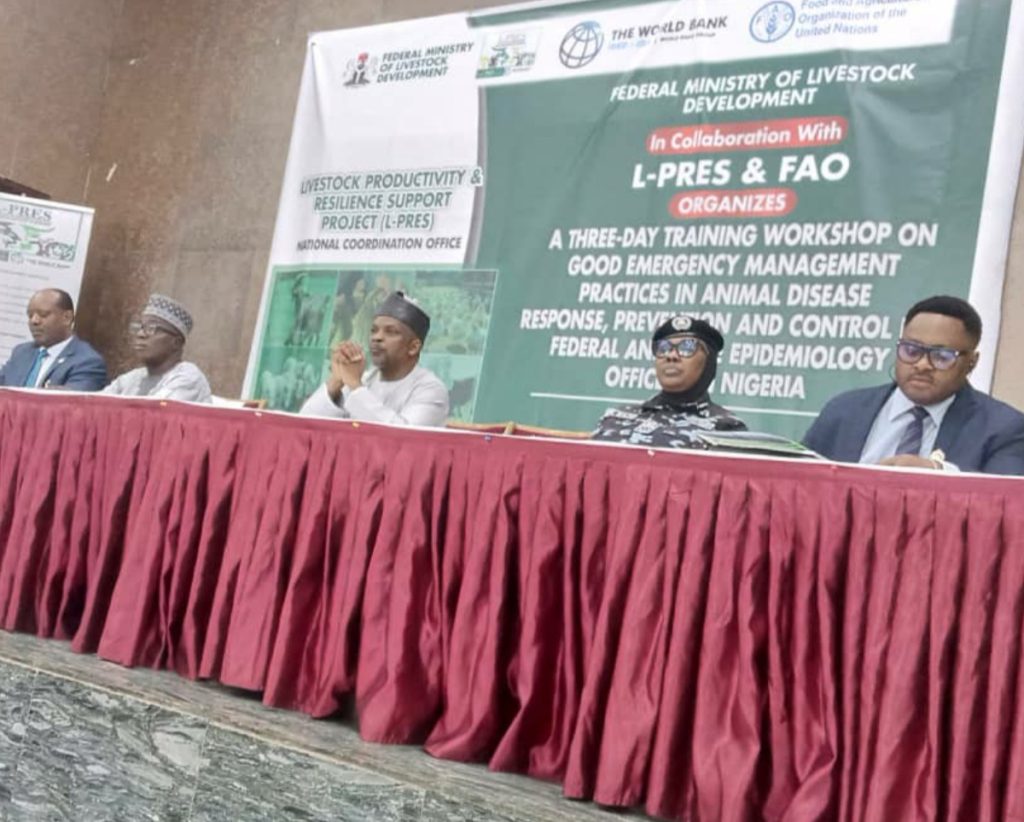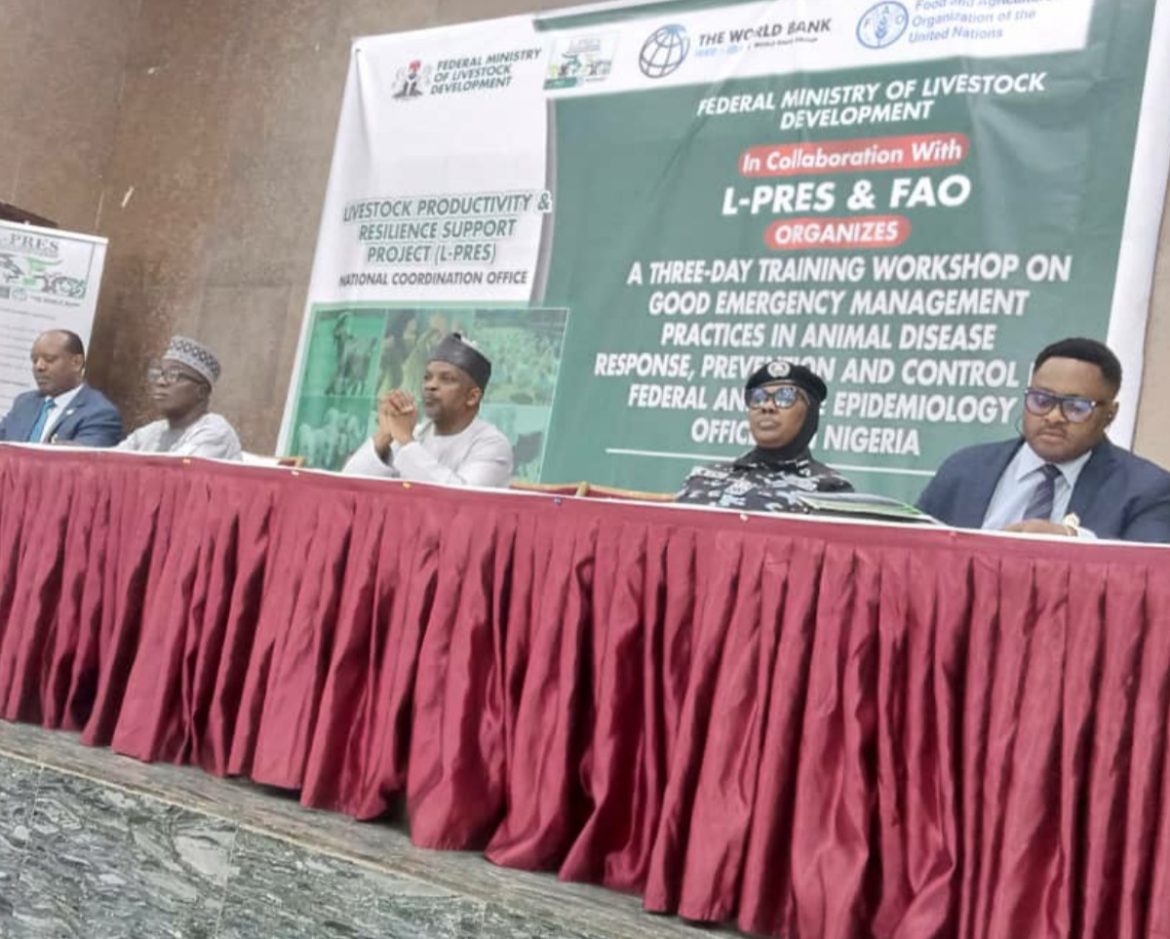By Felicia Imohimi
The Federal Government has commenced the training of epidemiological and veterinary public health officers across the country.
The initiative is being carried out in collaboration with the Livestock Productivity and Resilience Support Project (L-PRES) and the Food and Agriculture Organisation (FAO).
The training aims to equip participants with the skills to effectively prevent, detect, and respond to animal health emergencies.
Minister of Livestock Development, Idi Maiha, stated this on Tuesday in Abuja at the opening of the training organised by L-PRES, a World Bank-supported project, in partnership with the FAO.
The News Agency of Nigeria (NAN) reports that the programme is tagged “Good Emergency Management Practices in Animal Disease Response, Prevention and Control for Federal and State Epidemiology Officers in Nigeria”.
Maiha said the training would help the officers adopt new technologies and knowledge to enhance planning, surveillance, and outbreak reporting.
He noted that the speed of reporting and response was crucial in managing animal health emergencies.
“What is important in animal health is not just investigation but the speed of reporting and response,” he said.
“Once there is an outbreak in one state, other states are threatened. Therefore, we must all be on the same page and platforms to manage transboundary diseases and animal movement”.

The minister said the training would position officers to investigate and respond swiftly to any outbreak.
Dr Sanusi Abubakar, National Project Coordinator of L-PRES, said the essence of the training was to strengthen Nigeria’s collective ability to anticipate, prevent, detect, and respond to animal health emergencies.
He described Good Emergency Management Practices (GEMP) as a globally recognised, evidence-based framework that promotes structured and proactive emergency preparedness and response.
Abubakar said GEMP emphasises intersectoral coordination and the integration of One Health principles.
He said the workshop was a vital step towards institutionalising a robust and resilient veterinary public health system in the country.
He said it aligns with international standards set by the FAO, the World Organisation for Animal Health, and the World Health Organisation (WHO) under the One Health strategy.
“We acknowledge that many veterinary professionals at federal and state levels have not had the opportunity to fully engage with the latest best practices in emergency management.
“This workshop addresses that gap by enhancing their technical capacities to design, implement, and evaluate emergency preparedness plans tailored to Nigeria’s context, “he said.

Abubakar said the collaboration with FAO was aimed at leveraging its technical expertise to facilitate the training, adding that it reflected ongoing cooperation to strengthen the livestock industry.
“Through enhanced coordination, improved risk assessment, and strategic contingency planning, we will be better positioned to safeguard both animal and human health in Nigeria,” he added.
(NAN)

